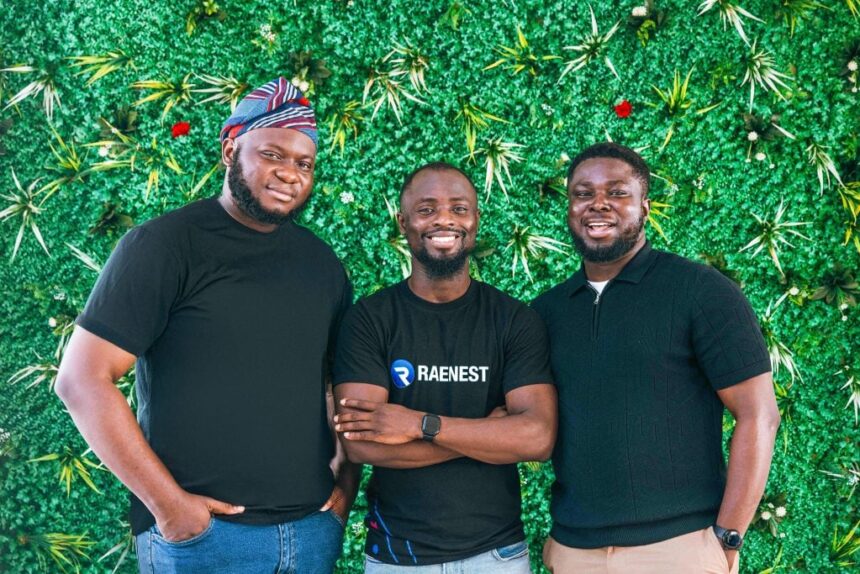Raenest, the Africa-focused fintech company, has announced the launch of Raenest Exchange 2025, a full-day technology and innovation summit scheduled for October 9 in Lagos, Nigeria. The event, themed around shaping Africa’s digital future, is expected to bring together freelancers, founders, creators, investors, and policymakers in one collaborative space.
Raenest Exchange 2025 is designed as more than just a conference. Organizers describe it as a marketplace of ideas and opportunities, where knowledge, networks, and resources intersect. It targets Africa’s growing digital workforce—freelancers, creators, and entrepreneurs who are increasingly driving the continent’s technology economy.
According to Raenest, the gathering aims to serve as a hub for cross-border collaboration. Attendees will engage in discussions on digital payments, global freelance opportunities, startup growth, and Africa’s emerging role in the global tech landscape.
Why Lagos, Why Now?
Nigeria is home to one of the largest tech ecosystems in Africa, with Lagos often described as the continent’s innovation hub. Hosting Raenest Exchange in Lagos underscores the city’s growing significance in global conversations about technology and finance.
For Raenest, the timing also matters. As digital work continues to expand globally, Africa remains a rising contributor, with millions of young professionals entering remote and freelance markets. The company says it hopes the conference will address persistent barriers—from cross-border payments to investor access—that limit African digital talent.
Industry analysts note that the event could strengthen Africa’s digital economy by aligning stakeholders who rarely share the same space. Freelancers may find investors, startups may meet regulators, and global partners may connect directly with African innovators.
However, the challenge lies in scaling inclusivity. Events like these often attract elite circles concentrated in major cities like Lagos, potentially excluding voices from smaller African markets. For Raenest Exchange to become a true continental platform, it must extend participation beyond immediate urban and corporate networks.
Why it Matters
While this will be the first edition of Raenest Exchange, its ambitions go beyond a single conference. The company envisions it evolving into a recurring gathering that not only showcases innovation but also influences policy and mobilizes capital toward Africa’s digital economy.
Observers say the real measure of success will not be in the keynote speeches but in the partnerships and ventures that emerge after the summit.
Raenest Exchange 2025 signals a shift in Africa’s tech narrative: from fragmented progress to collective action. By convening diverse actors under one roof, Raenest is betting on the power of collaboration to accelerate Africa’s digital transformation.
Whether the conference becomes a one-off showcase or a flagship event shaping Africa’s tech decade remains to be seen. But its launch has already sent a clear message: Africa’s digital economy is ready to claim a seat at the global table.
Talking Points
While Raenest Exchange 2025 is a welcome development, it highlights a recurring problem in Africa’s tech ecosystem: the over-concentration of opportunities in Lagos, Nairobi, Cape Town, and a few other hubs.
If this event is meant to represent Africa’s digital future, then the absence of strong participation from secondary cities and underserved regions risks reinforcing the same inequalities we claim to be solving. Africa’s digital economy cannot thrive if access is restricted to a handful of elite circles.
Africa has no shortage of tech conferences. From Cape Town’s AfricaCom to Nairobi’s Africa Tech Summit, we have seen countless gatherings where speakers repeat the same narratives of “unlocking opportunities.”
The real test for Raenest Exchange 2025 will be whether partnerships, investments, and regulatory frameworks are born out of this summit—or whether it will simply be another glamorous event for photo ops and hashtags.
Freelancers, who form the backbone of Africa’s growing digital economy, face very practical challenges: delayed payments, predatory fees, lack of financial literacy, and limited access to global opportunities.
If Raenest Exchange 2025 is truly about shaping Africa’s digital future, then these issues must move from breakout session topics to actionable commitments. Otherwise, the event risks romanticizing the “digital worker” without addressing the structural barriers they face.





